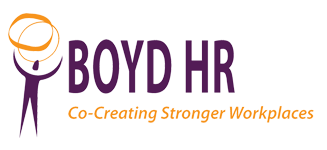Supporting an employee through grief is, unfortunately, one of the hardest and most delicate tasks that you will undertake as a manager.
People grieve the loss of a loved one differently. When a death impacts a single employee or your entire staff, it can have an impact on your workplace in terms of absenteeism, productivity, and your team’s long-term emotional and mental health. The loss of a loved one will happen to every single one of us at some point. Sometimes, regrettably, it happens to several people at once, as with an accident or a global pandemic.
What to do when an employees loved one passes away
- As soon as you become aware that one of your employees has experienced a loss, contact them directly to express your condolences and let them know you are there to support them.
- You need to be respectful to their space and considerate to their needs.
- If your business offers compassionate leave, ensure this is communicated and offered to the employee.
- Be mindful and respectful of your employee’s privacy. If the grieving employee wants to share news of their loss with their co-workers, they will do so.
- Separate to this you need to plan how to delegate their workload.
- When an employee returns to work after the death of a loved one, be patient and accommodating. Reiterate that you care about them and support them with your actions.
- If your business has an Employee Assistance Programme (EAP) in place and your employee is struggling to cope with the loss of a loved one, ensure you offer them this service.
- Maintain an open-door policy in which your employee knows they can share concerns with you, and you will be available to listen.
What to do if an employee passes away
- Everything that is challenging about the loss of an employee’s loved one can present the same challenges – perhaps even more – when it’s one of your own employees who passes away. This is because the death has the potential to impact all employees in a team or department up to the entire business.
- When you become aware of an employee’s death and have basic information to share, you need to talk to your entire team. Such news is always better coming from management.
- Be open, but respectful of the wishes of the deceased’s family. If you don’t know the answer to questions other employees ask or you don’t have the family’s permission to share something, simply say you don’t know but will try to find out.
- Acknowledge the loss and what it means for you and your employees.
- Make it clear that your employees have your support. Provide them with any relevant resources that are available at your workplace.
- Keep employees updated as more information becomes available regarding funeral arrangements.
- It is understandable that your employees may want to attend funeral services for a colleague. And, if it works for your business, you should encourage it and be as flexible as possible.
- It is important to be proactive and plan ahead for what you would do if you suddenly lost a valued member of your team. You would need to:
- Identify which skills and knowledge gaps would exist in their absence.
- Have an understanding of what they are working on and how they complete their work.
- Establish a succession plan.
Being proactive about managing grief in the workplace will help you to be prepared and thus better able to respond when death and loss occur. It also ensures a speedier return to productivity than if the issues are ignored.
For Expert HR advice please email info@boydhr.ie.
